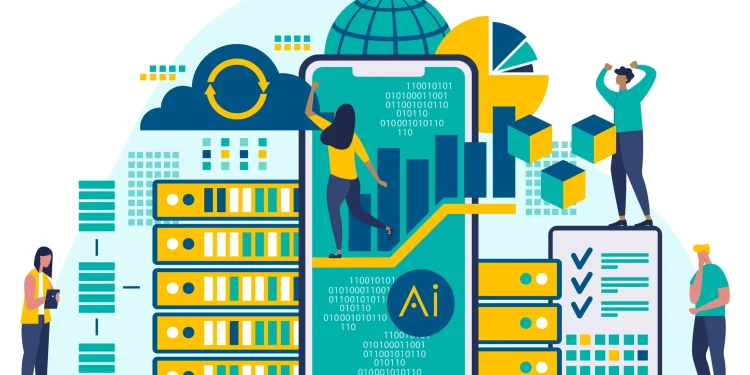In recent years, the integration of artificial intelligence (AI) into the recruitment process has been a game-changer, particularly in the areas of resume writing and screening.
AI-powered tools and algorithms are streamlining the way resumes are crafted and reviewed, offering both candidates and employers a more efficient and effective recruitment experience.
Let’s explore the transformative influence of AI on resume writing and screening processes.
The Resume Writing Revolution
The traditional approach to resume writing often involves guidelines and a fair amount of guesswork about what recruiters are looking for.
AI, however, is rewriting this script by providing valuable insights and assistance in crafting compelling resumes.
- Personalized Guidance: AI-driven resume builders and editors analyze a candidate’s experience, skills, and industry trends to provide customized guidance. These tools suggest improvements, such as better wording or emphasizing relevant experiences tailored to the specific job being applied for.
- Keyword Optimization: Many companies employ applicant tracking systems (ATS) to manage their recruitment process. These systems scan resumes for keywords and phrases relevant to the job description. AI helps job seekers ensure their resumes contain the right keywords, increasing the chances of getting past the initial screening.
- Format and Design Recommendations: AI doesn’t just focus on content; it also offers suggestions for the visual elements of a resume. It can recommend fonts, layouts, and designs that are more likely to catch a recruiter’s eye.
- Grammar and Spell Check: AI-powered tools are excellent at catching grammar and spelling errors, which can be detrimental to a candidate’s chances. By ensuring resumes are error-free, AI enhances the overall professionalism of job applications.
- Time Efficiency: AI accelerates the resume writing process, saving candidates a substantial amount of time. Instead of spending hours crafting a single resume, AI tools can generate a polished document in a matter of minutes.
For those seeking inspiration for their job application, here’s a comprehensive collection of word resume templates that match the personalization of AI.
The Impact on Job Seekers
The integration of AI in resume writing has several implications for job seekers:
- Increased Competitiveness: AI tools level the playing field, giving candidates of all backgrounds access to quality resume-writing assistance. This increases competitiveness in the job market.
- Better Self-Presentation: AI helps job seekers present themselves more effectively by highlighting their relevant skills and experiences. This can lead to better job matches and potentially higher salaries.
- Optimized Resumes: AI-optimized resumes are more likely to make it past ATS and into the hands of recruiters. This means candidates have a greater chance of securing interviews.
- Time Savings: With AI’s help, candidates can focus more on job searching and interview preparation rather than spending excessive time on resume crafting.
The Resume Screening Revolution
On the other side of the hiring equation, AI has significantly impacted how employers screen resumes. Traditional manual screening methods are time-consuming and prone to human biases, which AI can mitigate. Here’s how AI is reshaping the process:
- Efficient Sorting: AI algorithms can quickly sort through hundreds or even thousands of resumes, categorizing them based on criteria set by the employer. This speeds up the initial selection process.
- Bias Mitigation: One of the most significant advantages of AI screening is its ability to reduce human biases. AI focuses solely on the qualifications and experiences of candidates, removing factors like gender, race, or age from the equation.
- Customizable Criteria: Employers can tailor AI screening algorithms to prioritize specific qualifications, skills, and experiences for each job opening. This ensures that only the most relevant candidates are considered.
- Consistency: AI algorithms evaluate resumes consistently, which means all applicants are subject to the same criteria and standards. This eliminates variations in the assessment process that can occur with human screeners.
- Data-Driven Insights: Over time, AI systems collect and analyze data from previous hiring processes. This can provide valuable insights into what types of candidates are successful within an organization, allowing for continuous improvement in the screening process.
The Impact on Employers
The incorporation of AI in resume screening offers numerous advantages for employers:
- Time and Cost Savings: AI dramatically reduces the time and effort required for initial resume screening. This is particularly beneficial for organizations with high volumes of job applications.
- Enhanced Quality of Hires: By automating the initial screening process, AI helps ensure that only the most qualified candidates reach the interview stage, leading to more successful hires.
- Diversity and Inclusion: AI is less susceptible to unconscious biases, which means employers can build more diverse and inclusive teams. It helps to ensure that all candidates have a fair shot at opportunities.
- Improved Compliance: AI systems can be programmed to ensure compliance with equal opportunity and anti-discrimination laws, reducing the risk of legal challenges.
Challenges and Considerations
While the integration of AI into resume writing and screening processes offers numerous benefits, there are also challenges and considerations to be aware of:
- Data Privacy: AI systems often require access to large amounts of personal data, such as job history, education, and contact information. Employers and candidates must be vigilant about data privacy and security.
- Algorithmic Bias: AI is only as unbiased as the data it is trained on. If historical data contains biases, AI systems may inadvertently perpetuate these biases. Regular audits and adjustments are necessary to mitigate this issue.
- Loss of Human Touch: The increased use of AI in recruitment can lead to a loss of the human touch, which is crucial in understanding a candidate’s personality and cultural fit. Employers should use AI as a tool to aid, not replace, the human element in recruitment.
- Skill Disparities: Not all candidates have access to AI-powered tools for resume writing, potentially creating disparities in the quality of applications.
As AI continues to advance, it is likely to become an even more integral part of the recruitment process, ultimately transforming how candidates present themselves and how employers identify and select the best fit for their organizations.


